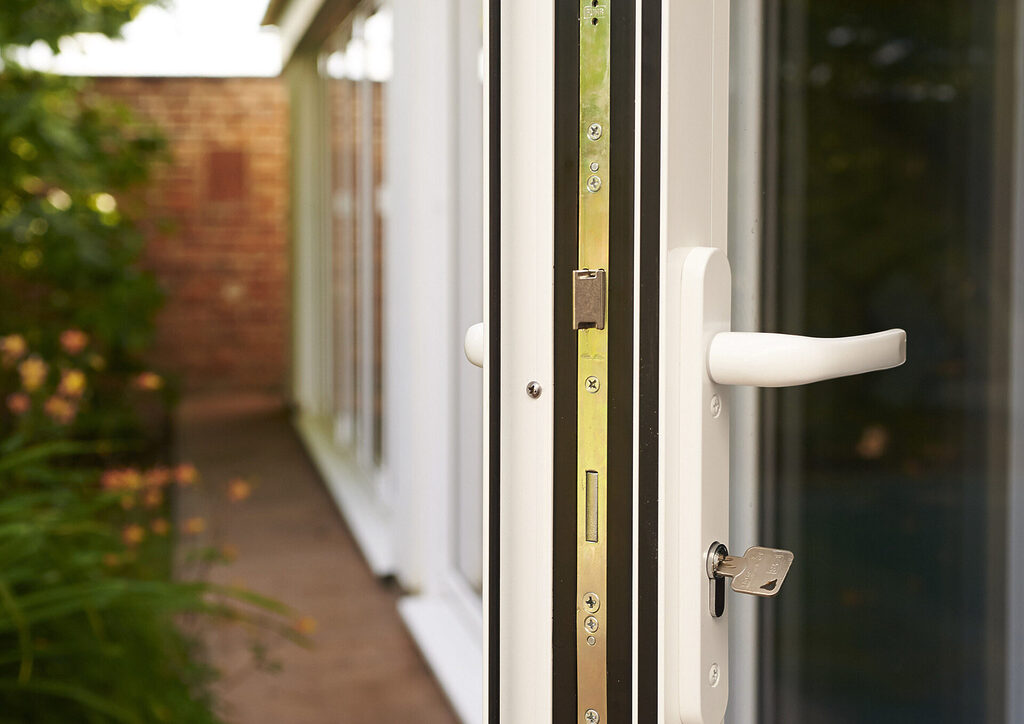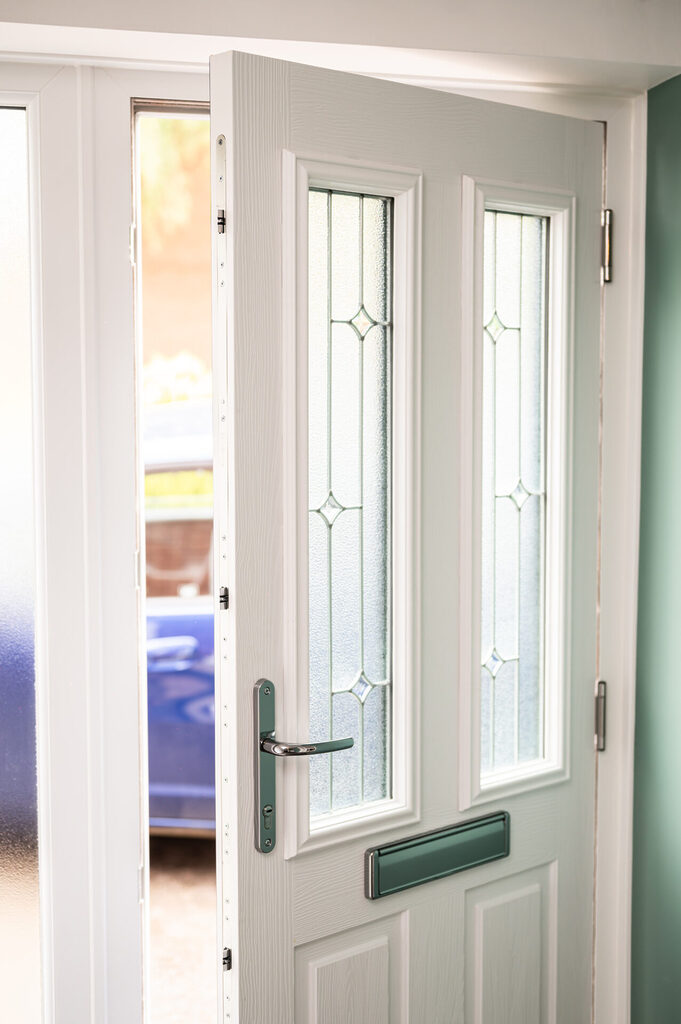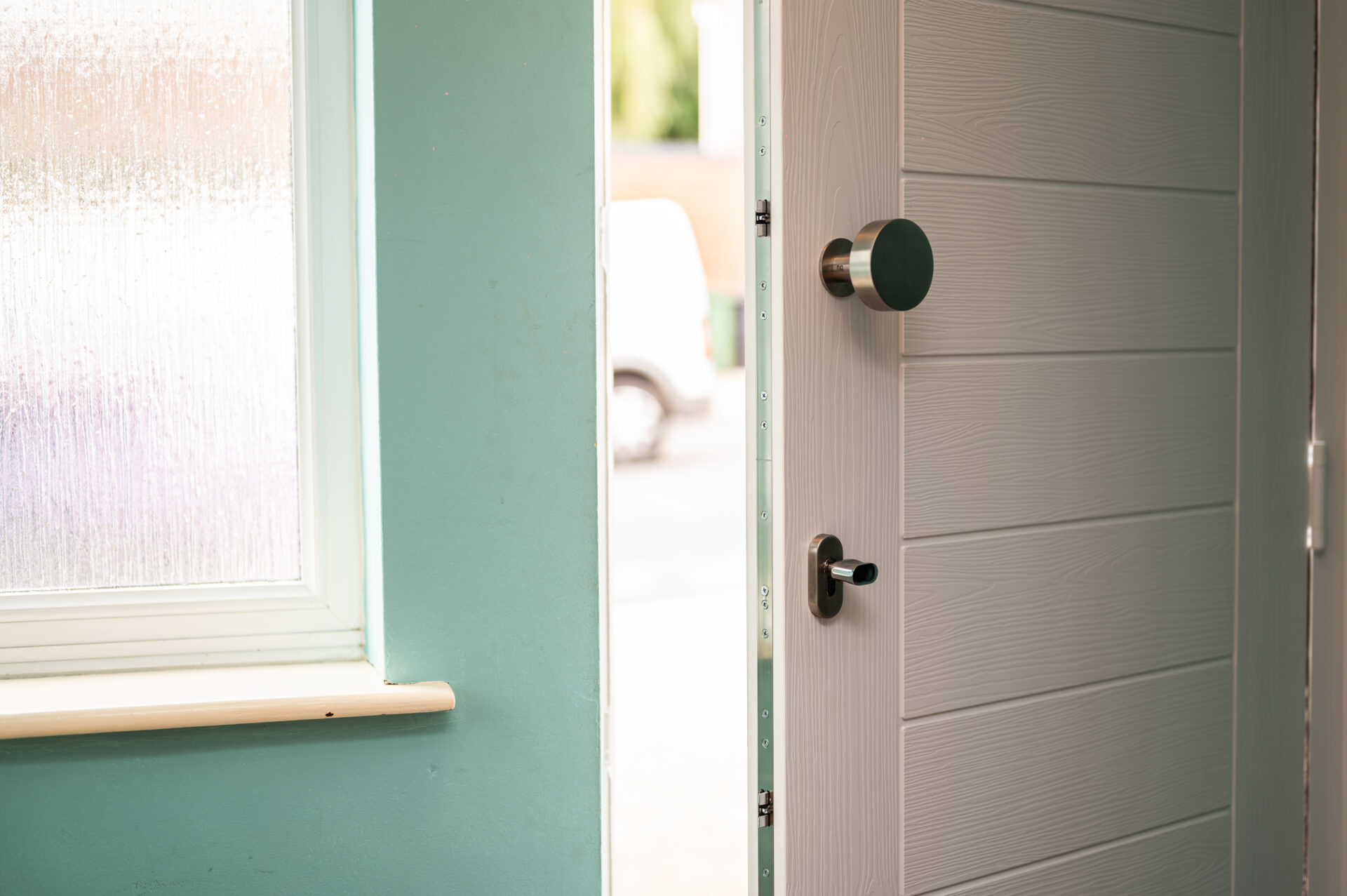Last Updated on 27 January 2025 by Josh Lucas
What Are The Types of Door Locks?
There are many types of door locks, including mortice locks, multi-point systems, smart locks, rim locks, and high-security deadbolts.
When it comes to securing your home, choosing the right types of door locks is one of the most important decisions you can make.
Not only does it safeguard your property, but it also provides peace of mind..
Locks are not just about functionality; they’re the first line of defence against intruders and an essential aspect of your home’s overall security system.
Whether you’re upgrading your front door or securing sliding patio doors, understanding the different lock types available ensures you make the right choice for your specific needs.
Beyond security, locks can also contribute to energy efficiency and convenience, especially with modern options like multi-point systems and smart locks.
In this guide, we’ll take you through the various types of door locks, breaking down their features, benefits, and ideal use cases.
By the end of this article, you’ll have a clear understanding of what to look for and how to ensure your home is as secure as possible.
Key Points Covered in This Article:
- Overview of Popular Door Lock Types
- Which Lock Types Suit Different Door Types and Materials
- Features to Look for in Secure Locks
- Maintenance Tips to Keep Your Locks Working Smoothly
- FAQ’s
Understanding the Types of Door Locks
1. Mortice Locks
A staple in UK homes, mortice locks fit into a pocket cut within the door itself. They’re often used on wooden doors and are available in two main types:
Deadlocks
These operate using a single key and provide robust security. Deadlocks are ideal for doors requiring high security without a latch mechanism.
Sash Locks
Combining a deadlock with a latch mechanism, sash locks offer added convenience by allowing the door to stay closed without locking.
2. Multi-Point Locking Systems
Primarily used on uPVC and composite doors, multi-point locking systems lock at multiple points along the door frame.
Enhanced Security
These systems distribute locking force across multiple points, minimizing weak spots and making forced entry difficult.
Better Energy Efficiency
By creating a tight seal, multi-point locks help improve thermal performance, keeping your home energy-efficient.
Resistance Against Forced Entry
The distributed locking mechanism makes it harder for intruders to break in, offering a significant security boost.
These systems are particularly effective for large doors, such as bi-folds, as they distribute locking force across multiple points.
3. Smart Locks
Embracing technology? Smart locks are the future!
These keyless options work in conjunction with a multi-point lock and can be controlled via smartphone apps, voice commands, or even biometrics.
Remote Locking/Unlocking
Control your lock from anywhere, offering both convenience and enhanced security.
Activity Logs
Keep track of who enters and exits your home with detailed activity logs.
Integration with Smart Home Systems
Smart locks work seamlessly with other devices like security cameras and alarms, creating a connected and secure home.
Smart locks are perfect for rental properties as they allow temporary digital keys to be shared with tenants.
4. Rim Locks
Rim locks, including the traditional Yale lock, are surface-mounted and feature a latch mechanism.
Ideal for Internal Doors
These locks are perfect for privacy and light security needs within the home.
Easy Installation
Rim locks are straightforward to install and maintain, making them a convenient choice for homeowners.
Which Locks Work Best for Different Doors?
Composite Doors
Composite doors pair well with multi-point locking systems and Euro cylinders for optimal security. Their robust construction is complemented by these advanced locking mechanisms.
Aluminium Doors
Slim yet strong, aluminium doors are a popular way to give your home a modern aesthetic, by combining their standard multi-point locking system with a Smart lock you can give you home some advanced functionality.
Bi-Fold and Sliding Doors
Locks for bi-folding doors and sliding doors often feature specialised multi-point systems, ensuring both ease of use and superior security. Integrated blinds within the glass can add another layer of privacy.

Glazed French Doors
For French doors, look for multi-point locking systems integrated with robust anti-lift devices.
Internal Doors
For internal doors, rim locks or lever locks are lightweight yet functional options that provide adequate privacy and control.
Features to Consider When Choosing Locks
Security Standards
Ensuring your locks meet British Standards is crucial for both security and compliance.
Look for certifications like BS3621 for mortice locks and PAS 24 for multi-point locking systems.
These standards guarantee that your locks have been tested for strength, durability, and resistance to tampering or forced entry, offering you peace of mind.
Ease of Use
Locks should be convenient and user-friendly, especially for everyday use.
Consider options like keyless entry systems or locks with ergonomic designs that make operation smooth and effortless.
For families, locks with child-safety features or easy-access thumb-turn mechanisms can add an extra layer of practicality.
Compatibility
Not all locks are suitable for every door type or material.
Ensure the lock you choose is compatible with your specific door—be it aluminium, uPVC, or wood.
For instance, multi-point locks are ideal for uPVC and composite doors, while mortice locks work best with solid wooden doors.
Innovative Features
Modern locks come equipped with advanced technologies designed to enhance security.
Features like anti-drill cylinders, pick-resistant mechanisms, and anti-snap designs make it harder for burglars to compromise your lock.
If you’re tech-savvy, consider smart locks that integrate seamlessly with home automation systems and offer remote control via apps.
Maintenance
Locks with durable finishes can withstand daily wear and tear while maintaining their appearance and functionality.
Look for corrosion-resistant materials, especially for external doors exposed to weather.
Proper maintenance, such as regular lubrication and alignment checks, will also ensure your locks last longer and perform reliably.

Maintaining Your Door Locks
Clean Regularly
Regular cleaning is essential for keeping your locks in optimal condition.
Dust and debris can accumulate over time, causing the mechanism to become sluggish.
Use a soft cloth and a specialist lock lubricant to clean and maintain smooth operation. Avoid using heavy oils or grease as they can attract more dirt.
Check Alignment
Misaligned locks are a common cause of wear and tear.
If the door and lock mechanism are not aligned properly, it can lead to difficulty in turning the key or locking the door.
Periodically check the alignment and adjust the door hinges or lock mechanism as necessary. This not only improves functionality but also extends the life of your lock.
Inspect for Wear
Worn or damaged components can compromise the security of your door.
Regularly inspect your locks for loose screws, rust, or signs of tampering.
Pay close attention to the key cylinder and latch for smooth operation. If you notice any damage, consider repairing or replacing the affected parts immediately.
Upgrade Periodically
Technology evolves, and so do lock security standards.
If your locks are outdated, it may be time to upgrade to modern, secure options like anti-snap cylinders, smart locks, or multi-point locking systems.
These upgrades not only enhance security but also offer added convenience and peace of mind.
Secure Your Home with Confidence
Choosing the right door lock is about more than just security—it’s about peace of mind, convenience, and ensuring your home remains your sanctuary.
With the insights shared in this guide, you’re now equipped to make an informed decision that matches your needs and lifestyle.
Ready to take the next step? Call our expert team on 01642 309 576 or get an instant quote online at GFD Homes.
Whether you’re upgrading your existing doors, or just seeking advice, we’re here to help you every step of the way.
FAQs
What are the different types of door locks?
From mortice locks and multi-point systems to smart locks and deadbolts, there’s a wide range to suit every door type and security need.
What is the most secure type of front door lock?
A multi-point locking system combined with an anti-snap cylinder offers top-tier security for front doors, especially those made of composite or uPVC.
What’s the difference between a mortice lock and a sash lock?
A mortice lock refers to the lock mechanism embedded within the door, while a sash lock combines the functionality of a mortice lock with a latch, allowing the door to stay closed without being locked.
